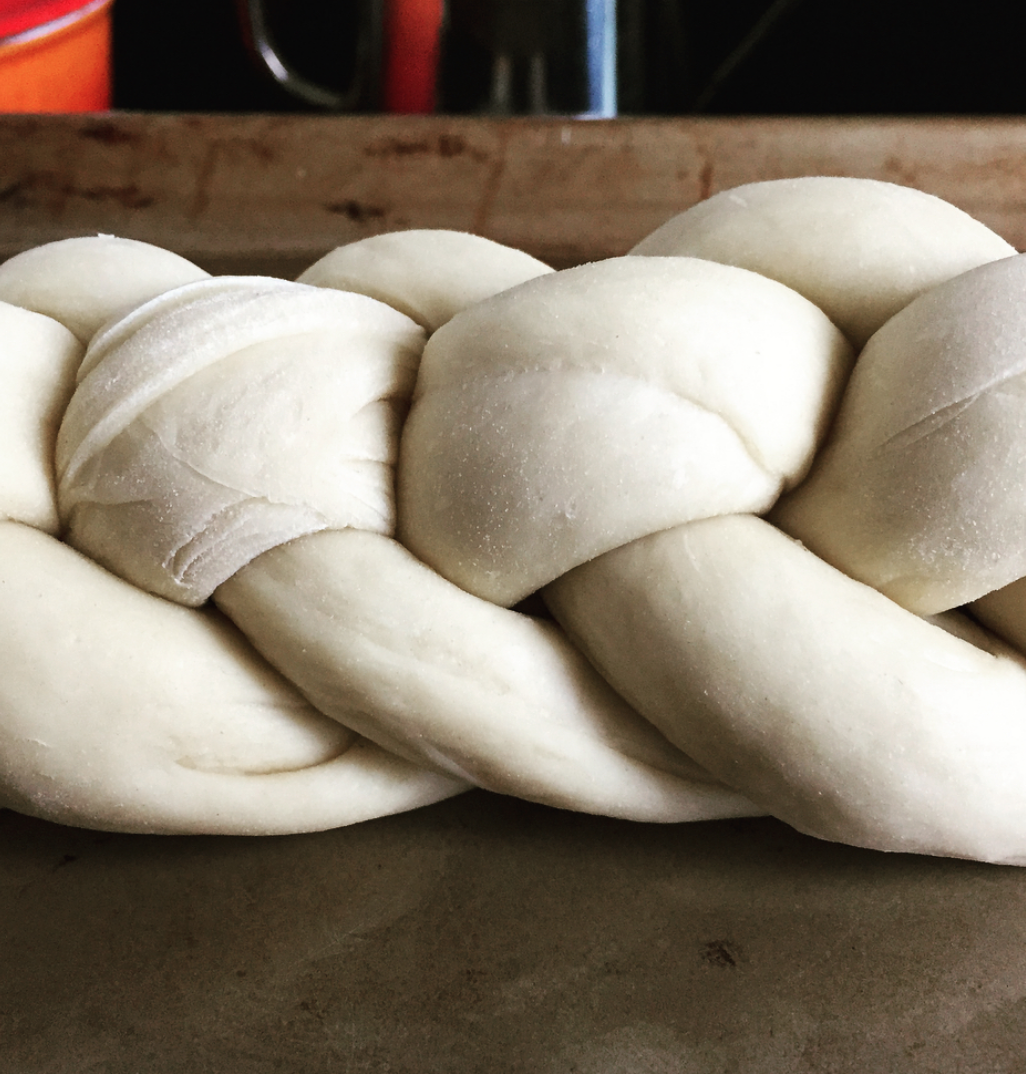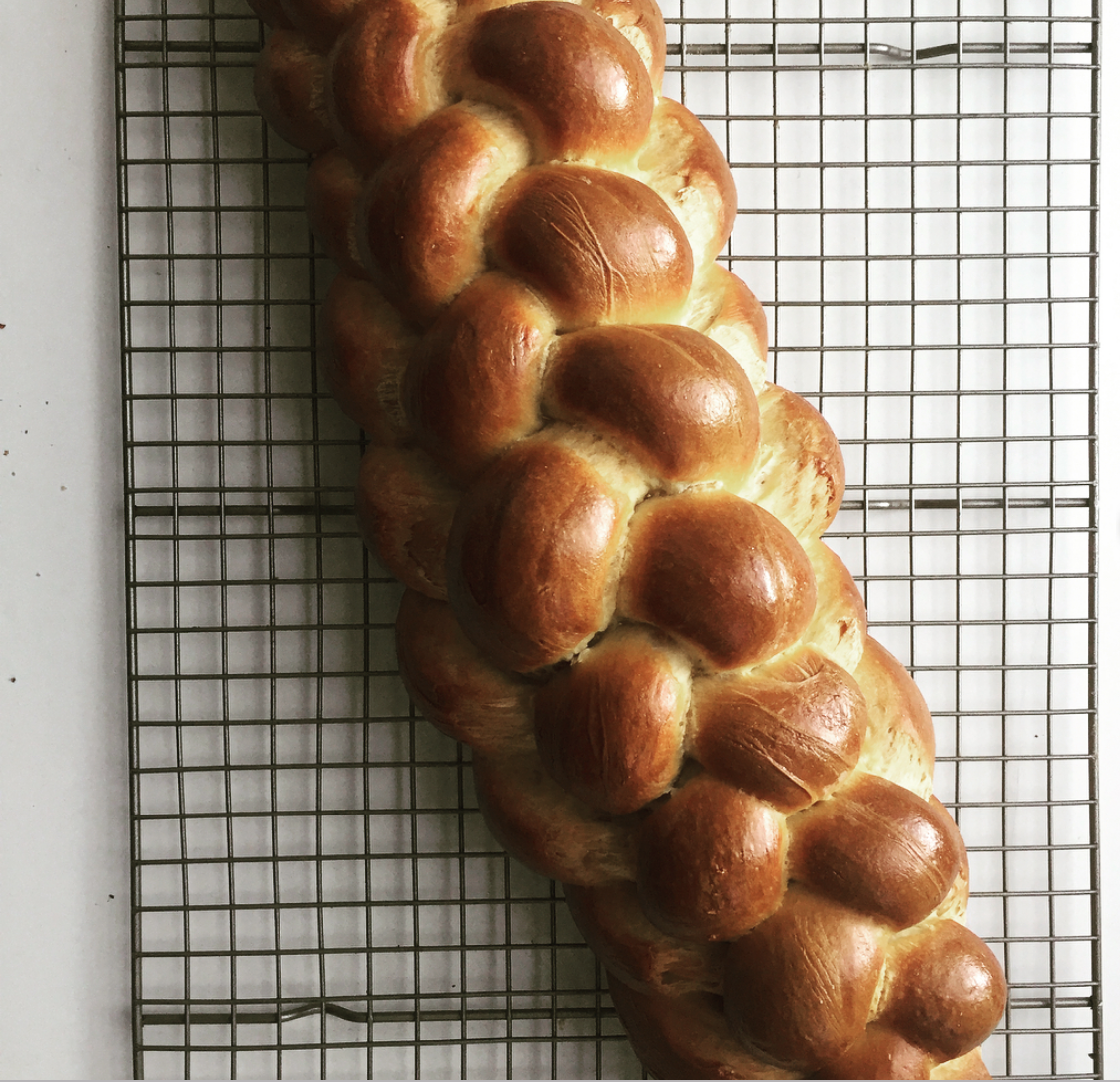I took up bread baking right around the time my first son was born. It was a way to activate my brain with something constructive yet inconsequential during a marathon of infant care and took the place of aimless social media scrolling as a way to relax.
It takes 36 hours to mix, ferment, shape, proof and bake a loaf of sourdough bread. It is never perfect, and rarely consistent. Density, flavor, moisture, rise – everything from timing to room temperature to humidity pushes and pulls the characteristics of a simple loaf of bread in different directions.
Over the next two years, I baked a lot of bread. Some of it airy, moist and flavorful. But mostly, dense, dry and bland. But it was fun, cathartic, and the bread was generally edible, if not enjoyable. Eventually, I got better at it. I added eggs to the dough and started making challah for Shabbat. My son, now a preschooler, helps me pour ingredients and shape dough.
When my second son was born, I was ready. I baked a loaf of challah for his bris, using the same sourdough starter (a mix of flour and water that became a culture with the addition of wild yeast and bacteria) that I had started a couple years earlier. I was parent-of-a-newborn tired all over again. I spoke, during the ceremony in our living room, about sustenance, about how, as a family and community, we use our abilities and effort to nurture our children. The long, braided challah – flour, water, salt and eggs – represented all of that.

We rely on so many people to help raise our children. Our older son goes to nursery school all week. A nanny helps take care of the baby three days a week. Grandparents fill in the gaps. My wife and I work. We have interests and friends, and increasingly, as the boys get older, so do they. Our modern life in Brooklyn is a funhouse of obligations, options and opportunities.
As often as possible, I find the time to replicate the challah and have it ready for Friday night. Ideally, we have guests, and the bread is part of a spirited affair. But often, it’s just a quiet evening shared between myself, my wife, our three-year-old and our baby. The bread on the table, candles, some quick prayers, and dinner as a family.
When I bake for Shabbat, I have to start the bread Wednesday evening, mixing the leaven – a combination of starter, fresh flour and water. Thursday morning I mix the dough, and Thursday evening, I braid the loaf and into the fridge it goes to ferment overnight before baking Friday morning. The quality of the bread remains inconsequential. It rises. It collapses. It’s dry. It’s perfectly moist. It doesn’t really matter. There’s always next week. Next try. But the 36 hours. For me to work. For me to focus. For me to think. For me to prioritize. And the loaf becomes a part of our meal. Our table. Our family. Our bread.

With the National Day of Unplugging from Reboot coming up this Friday night, I’m given the opportunity to reflect on this ritual of the bread, and consider the importance of pausing to unplug, unwind and connect.
Follow us here and subscribe here for all the latest news on how you can keep Thriving.
Stay up to date or catch-up on all our podcasts with Arianna Huffington here.


